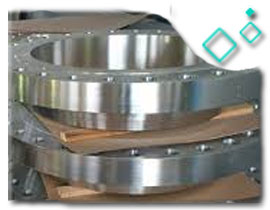From a domestic and industrial perspective, stainless steel is used in many applications for good reason. It is durable, heat resistant, easy to manufacture and has a beautiful appearance. Ss 304 flanges manufacturer in India offer all these benefits and more.
Stainless steel flanges are important joints in pipelines, valves and other equipment. They are essential in natural gas, transportation, water, food and beverage, power generation, construction and chemical industries. Advantages of using flanges in these sectors:
- The use of flanges in industrial applications facilitates inspection, adjustment and cleaning. This is important for any application. No welding, painting or sandblasting is required.
- Using a flange eliminates the need to weld the coil. Unlike other tools and methods, no painting or sandblasting is required.
- Many pipe spirals can be made relatively easily and quickly in the machine shop and are quick to manufacture and easy to modify. And you can use a wide range of materials, from stainless steel to copper and brass.
- Stainless steel flanges are more expensive to insulate and take up more space, while other materials may require more effort to install and maintain. Using stainless steel flanges is much better than other options.

Grade 304 contains 18-20% chromium (Cr) and 8-12% nickel (Ni), with trace amounts of carbon (C) and manganese (Mn). Compared to 316, its chemical properties, mechanical properties and corrosion/oxidation resistance make it a better overall performance at a relatively low cost. This is why 304 stainless steel pipe is so popular and widely used.
304 stainless steel flanges are also commonly used in commercial wells and drinking water pipe fittings. It is also an excellent choice for many other commercial and industrial non-potable water applications requiring excellent corrosion resistance. One caveat is, of course, that it is not recommended for environments with a high sulphur content, hydrochloric acid, formic acid and lime.
Applications of steel fittings
304 and 316 stainless steel couplings are available for light and heavy-duty applications. Understanding the differences will help you decide which product is best for your application. You can see the difference in weight and wall thickness.
An excellent choice for residential/commercial potable water systems. Ss 316 pipe fittings manufacturer India provide a wide range of non-critical applications, including industrial and commercial applications, food processing and other non-potable water piping systems.
Low-alloy stainless steel grades resist corrosion in pure water and atmospheric environments. In contrast, high-alloy grades resist corrosion in most acid, alkaline, and chlorine-containing environments, and these properties are used in processing plants.
SS pipe fittings manufacturers in india use Special high chromium and nickel alloys, which are fire and heat-resistant, resist fouling and maintain strength at elevated temperatures. The ease of cleaning of stainless steel makes it the first choice for stringent hygienic conditions such as hospitals, kitchens, slaughterhouses and other food processing plants.
The strength-to-weight ratio advantage, the work hardening properties of austenitic grades lead to significant material strengthening by cold working alone. In contrast, high-strength duplex grades allow for reduced material thickness compared to conventional grades, resulting in savings. Ss 316 flanges manufacturer in India techniques mean that stainless steel can be cut, welded, formed, machined and fabricated just as easily as traditional steel.